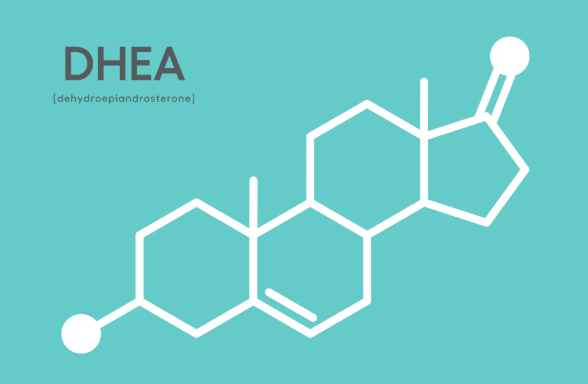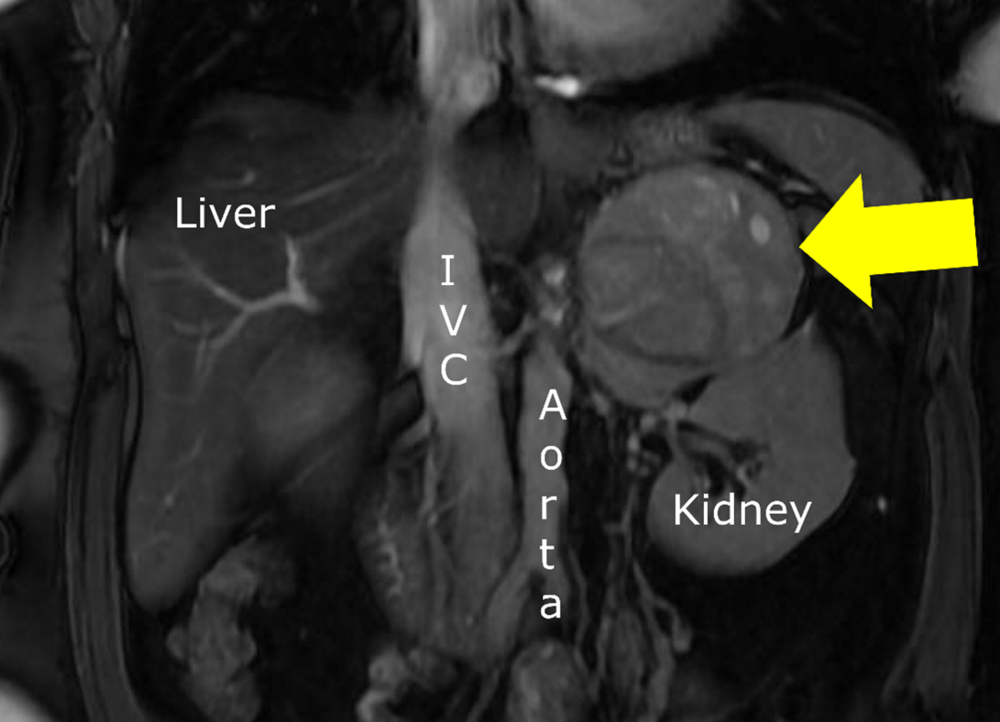What is DHEA and What Does It Tell Me About My Adrenal Tumor?

The human body is a marvel of intricate systems working together to maintain balance and health. Among these systems, the adrenal glands play a critical role, influencing everything from energy levels to stress response. Within this system, a hormone called dehydroepiandrosterone, or DHEA, stands out for its importance. If you or someone you know has been diagnosed with an adrenal tumor, you might have encountered DHEA as part of diagnostic tests. But what is DHEA, and why do doctors measure it? This article explores the science behind DHEA, its connection to adrenal tumors, and what it reveals about your health.
It is important to know that a high DHEA (or DHEA-S) can be bad with an adrenal tumor as it can suggest an androgen-producing tumor with a high risk of cancer, but a low DHEA is also concerning since it suggests cortisol overproduction (Cushing’s syndrome).
What is DHEA and What Does It Tell Me About My Adrenal Tumor?

What is DHEA?
DHEA is a steroid hormone primarily produced by the adrenal glands. These glands are part of the endocrine system and are responsible for producing various hormones, including cortisol, aldosterone, adrenaline, and sex hormones. DHEA serves as a precursor to male and female sex hormones—androgens and estrogens—and plays a role in a wide range of bodily functions, including:
- Regulating immune response.
- Supporting energy metabolism.
- Influencing mood and mental clarity.
- Contributing to bone density and muscle mass.
DHEA levels naturally peak during early adulthood and gradually decline with age. This decline has been linked to several age-related health issues, making DHEA a focus of both medical research and wellness trends. However, when DHEA levels are abnormally high or low, it may indicate an underlying medical condition.
Why Do Doctors Measure DHEA?
Doctors often measure DHEA levels—typically in its sulfate form, known as DHEA-S—as part of evaluating hormonal balance and adrenal function. The test provides valuable insights into several health conditions:
- Adrenal Gland Disorders: Abnormal DHEA levels may point to disorders such as adrenal hyperplasia, adrenal insufficiency, or adrenal tumors.
- Hormonal Imbalances: Conditions like polycystic ovary syndrome (PCOS) and certain fertility issues can be associated with elevated DHEA levels.
- Signs of Aging: Some researchers use DHEA-S levels to investigate age-related hormonal declines, though this is more common in research than clinical practice.
By measuring DHEA, physicians can determine whether the adrenal glands are overproducing or underproducing hormones, providing clues about the nature of any abnormalities, including tumors.
What Does DHEA Tell Me About My Adrenal Tumor?
Adrenal tumors can have significant implications depending on their type and activity. Broadly, adrenal tumors fall into two categories:
- Non-functioning Tumors: These do not produce excess hormones and are often discovered incidentally during imaging studies for unrelated conditions. Non-functioning tumors are usually benign and may be able to be managed without surgery.
- Functioning Tumors: These secrete hormones, including DHEA or other adrenal hormones, leading to noticeable symptoms and health effects. Examples include:
- Adenomas: Benign tumors that may produce cortisol, aldosterone, or DHEA.
- Adrenocortical Carcinomas: Rare malignant tumors that can overproduce hormones, including DHEA.
Measuring DHEA levels is crucial for diagnosing and managing functioning adrenal tumors. Here’s how DHEA measurements inform the diagnostic process:
- Identifying Hormonal Activity
Elevated DHEA levels suggest that the adrenal tumor is functioning and secreting hormones. If a tumor is producing excessive amounts of DHEA, it may disrupt the balance of androgens and estrogens, causing symptoms such as:
- In women: Excess facial and body hair (hirsutism), irregular menstrual cycles, or deepening of the voice.
- In men: Reduced sperm production, testicular shrinkage, or feminization effects (though these are less common).
- Differentiating Between Tumor Types
By assessing DHEA alongside other hormones, such as cortisol, aldosterone, and catecholamines, doctors can narrow down the type of tumor. For instance:
- High DHEA with normal cortisol and aldosterone levels may indicate an isolated adrenal tumor producing androgens, possibly an adenoma or adrenocortical carcinoma.
- Low DHEA together with high cortisol levels suggests cortisol overproduction and Cushing’s syndrome.
- Assessing Tumor Aggressiveness
While elevated DHEA levels can be a marker of tumor activity, extremely high levels may raise suspicion of malignancy. Adrenocortical carcinomas are more likely to produce large amounts of DHEA compared to benign adenomas.
- Monitoring Treatment Response
If treatment involves surgery, medications, or chemotherapy, measuring DHEA levels can help monitor the effectiveness of interventions. Declining levels after treatment typically indicate successful management of the tumor.

Figure. MRI of a left adrenal cancer (arrow) which produced very high levels of DHEA-S causing virilization in a woman with excessive facial hair (hirsutism), irregular menses, voice changes and other male characteristics.
Low DHEA levels in subclinical Cushing’s syndrome (mild autonomous cortisol secretion; MACS)
Low DHEA (dehydroepiandrosterone) levels in subclinical Cushing’s syndrome are primarily due to the chronic overproduction of cortisol by the adrenal glands. Here’s why:
- Cortisol Suppression of DHEA Production: Cortisol and DHEA are both produced in the adrenal cortex, but they are regulated differently. Chronic hypercortisolism, even at subclinical levels, suppresses the hypothalamic-pituitary-adrenal (HPA) axis. This suppression reduces adrenocorticotropic hormone (ACTH) levels, which is necessary for the production of DHEA. As a result, DHEA synthesis decreases.
- Shift in Steroidogenesis: In subclinical Cushing’s syndrome, adrenal steroidogenesis is often skewed toward cortisol production at the expense of androgens like DHEA. This occurs because of increased activity of certain enzymes, such as 11β-hydroxylase, which are involved in cortisol synthesis.
- Negative Feedback Mechanism: The elevated cortisol levels provide negative feedback to the hypothalamus and pituitary, further reducing ACTH secretion. Lower ACTH leads to diminished stimulation of the adrenal zona reticularis, where DHEA is primarily produced.
- Adrenal Dysfunction: Subclinical Cushing’s syndrome is caused by one or more adrenal adenomas/tumors. These tumors autonomously produce cortisol and may lead to reduced functionality of the remaining adrenal tissue, further lowering DHEA production.
This decrease in DHEA can have downstream effects, including a reduction in DHEA sulfate (DHEA-S) levels, which is often used as a diagnostic marker (measured with a regular blood lab test).
Key Takeaways
DHEA is more than just a hormone; it’s a window into the complex workings of your adrenal glands and a potential indicator of adrenal tumors. Measuring DHEA levels helps doctors:
- Identify whether an adrenal tumor is functioning or non-functioning.
- Diagnose specific types of adrenal disorders.
- Assess the aggressiveness of a tumor and guide treatment decisions.
- Monitor the success of treatments and detect recurrence.
While the idea of an adrenal tumor can be daunting, understanding the role of DHEA provides clarity and empowers you to navigate the diagnostic and treatment process with confidence.
Dr. Tobias Carling, of the Carling Adrenal Center, is one of the world's leading experts in adrenal gland surgery. Dr. Carling performs more adrenal operations than any other surgeon in America. Dr. Carling left Yale University in 2020 to open the Carling Adrenal Center in Tampa, Florida.
To discuss the details of your case with Dr. Carling and become his patient, fill out the new patient form and he will be in touch with you shortly.
Additional Resources:
- Learn more about the Carling Adrenal Center
- Learn more about Dr. Tobias Carling
- Learn more about our sister surgeons at the Norman Parathyroid Center, and Clayman Thyroid Center.
- Learn more about the Hospital for Endocrine Surgery